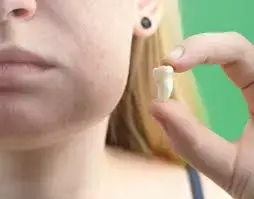- Home
- Medical news & Guidelines
- Anesthesiology
- Cardiology and CTVS
- Critical Care
- Dentistry
- Dermatology
- Diabetes and Endocrinology
- ENT
- Gastroenterology
- Medicine
- Nephrology
- Neurology
- Obstretics-Gynaecology
- Oncology
- Ophthalmology
- Orthopaedics
- Pediatrics-Neonatology
- Psychiatry
- Pulmonology
- Radiology
- Surgery
- Urology
- Laboratory Medicine
- Diet
- Nursing
- Paramedical
- Physiotherapy
- Health news
- Fact Check
- Bone Health Fact Check
- Brain Health Fact Check
- Cancer Related Fact Check
- Child Care Fact Check
- Dental and oral health fact check
- Diabetes and metabolic health fact check
- Diet and Nutrition Fact Check
- Eye and ENT Care Fact Check
- Fitness fact check
- Gut health fact check
- Heart health fact check
- Kidney health fact check
- Medical education fact check
- Men's health fact check
- Respiratory fact check
- Skin and hair care fact check
- Vaccine and Immunization fact check
- Women's health fact check
- AYUSH
- State News
- Andaman and Nicobar Islands
- Andhra Pradesh
- Arunachal Pradesh
- Assam
- Bihar
- Chandigarh
- Chattisgarh
- Dadra and Nagar Haveli
- Daman and Diu
- Delhi
- Goa
- Gujarat
- Haryana
- Himachal Pradesh
- Jammu & Kashmir
- Jharkhand
- Karnataka
- Kerala
- Ladakh
- Lakshadweep
- Madhya Pradesh
- Maharashtra
- Manipur
- Meghalaya
- Mizoram
- Nagaland
- Odisha
- Puducherry
- Punjab
- Rajasthan
- Sikkim
- Tamil Nadu
- Telangana
- Tripura
- Uttar Pradesh
- Uttrakhand
- West Bengal
- Medical Education
- Industry
People With Abdominal Obesity may have Higher Prevalence of Tooth Loss, reveals research

People With Abdominal Obesity may have Higher Prevalence of Tooth Loss, suggests study published in the Clinical and Experimental Dental Research.
Previous research has shown that people with obesity are at a higher risk of tooth loss; however, it is unclear whether abdominal obesity (e.g., high waist circumference) is associated with tooth loss among individuals without obesity. This study aims to investigate the association between abdominal obesity and tooth loss among people who are not obese.
Two cross‐sectional surveys were used: the United States' National Health and Nutrition Examination Survey (NHANES) 1999–2012 (n = 19,436) and the Scottish Health Survey (SHeS) 2008–2014 (n = 4243). Tooth loss was measured by the number of remaining teeth: 20 and over, 1–19, and edentulous. Abdominal obesity was defined by categorizing waist circumference into three levels: normal, high, and very high. Ordinal logistic regression was used to model the association between tooth loss and abdominal obesity.
Results: For people living without obesity, abdominal obesity is associated with a higher prevalence of tooth loss, and the effect is different between women and men. For women, abdominal obesity increased the chance of tooth loss by 64% (odds ratio [OR]: 1.64, 95% confidence interval [CI]: 1.16–2.34) in the NHANES and 196% (OR: 2.96, 95% CI: 1.47–5.97) in the SHeS. For men, abdominal obesity increased the chance of tooth loss by 41% (OR: 1.41, 95% CI: 1.06–1.87) in the NHANES and 65% (OR: 1.65, 95% CI: 1.02–2.73) in the SHeS.
This study indicated that the prevalence of tooth loss is substantially higher in people with abdominal obesity, and this association is distinctively different between men and women. These findings suggest that those who are not obese but have abdominal obesity may be an important target population for oral health prevention strategies.
Reference:
Kang J, Larvin H, Pavitt S, Wu J. Higher Prevalence of Tooth Loss in People With Abdominal Obesity but Normal Weight: Findings From the United States and Scottish Populations. Clin Exp Dent Res. 2024 Dec;10(6):e70047. doi: 10.1002/cre2.70047. PMID: 39563168; PMCID: PMC11576517.
Dr. Shravani Dali has completed her BDS from Pravara institute of medical sciences, loni. Following which she extensively worked in the healthcare sector for 2+ years. She has been actively involved in writing blogs in field of health and wellness. Currently she is pursuing her Masters of public health-health administration from Tata institute of social sciences. She can be contacted at editorial@medicaldialogues.in.
Dr Kamal Kant Kohli-MBBS, DTCD- a chest specialist with more than 30 years of practice and a flair for writing clinical articles, Dr Kamal Kant Kohli joined Medical Dialogues as a Chief Editor of Medical News. Besides writing articles, as an editor, he proofreads and verifies all the medical content published on Medical Dialogues including those coming from journals, studies,medical conferences,guidelines etc. Email: drkohli@medicaldialogues.in. Contact no. 011-43720751


